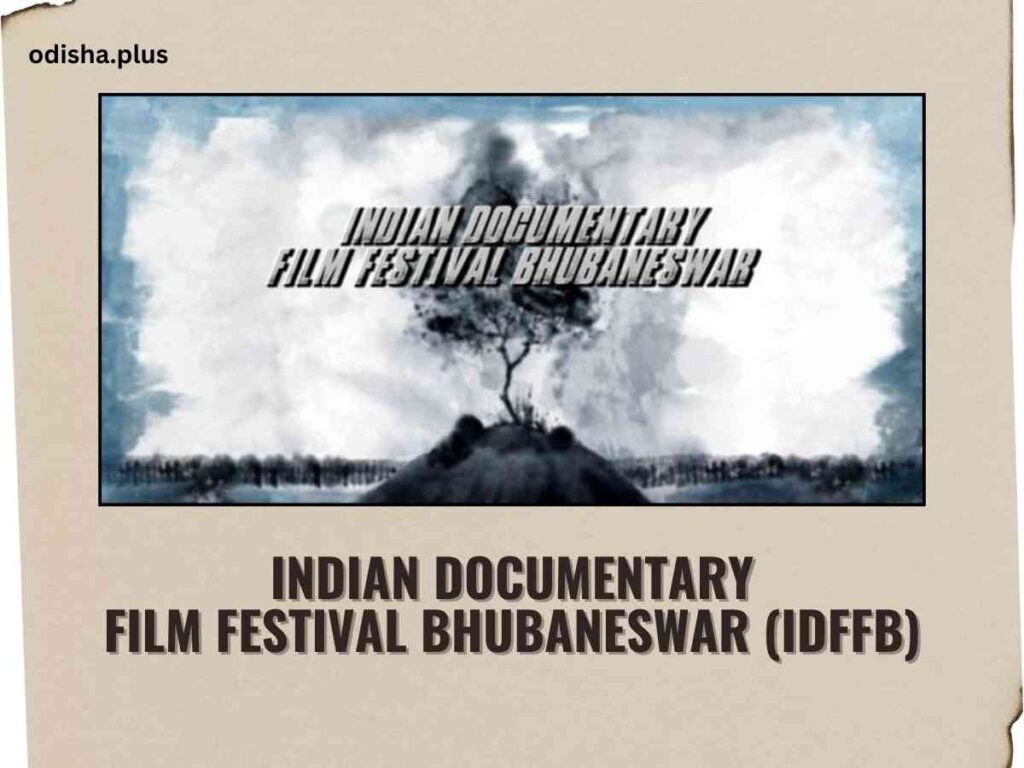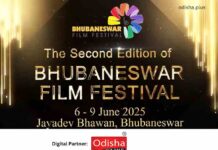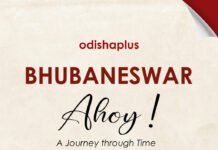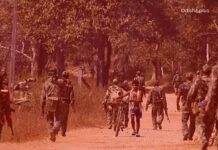The society organized 5th IDFFB at Odissi Research Center Auditorium FROM 26 to 29 September, 2024
Kapilas Bhuyan

If you are an avid film viewer and want to see about hundred films in a year, both classics and contemporary, be a member of the Film Society of Bhubaneswar. The FSB is probably one of the few film societies not only in Bhubaneswar or Odisha, but in the country today. It has been operative over last two decades and gives you an opportunity to view at least four films in every month in their monthly screening provision and conducts two film festivals every year – one is Indian Documentary Film Festival Bhubaneswar (IDFFB) and the other is Indian Film Festival Bhubaneswar (IFFB).
The society recently organized 5th IDFFB at Odissi Research Center Auditorium which is normally their venue from 26th to 29th September, 2024, showcased more than 30 documentary films of various lengths from all over the country. The interesting fact is that these films are made mostly by young generation filmmakers and the established ones too.
Interestingly, the festival has showcased a retrospective of Haobam Paban Kumar with five of his films made over last two decades. One of these films is AFSPA, 1958 (Manipuri/77-minute/2006) which narrates the plight of Manipuri people under the act that allows the search and arrest of any citizen just with mere suspicion and also to shoot and kill at will. Torturing and raping the women just happen in between against which the Manipuri people, particularly the women have been protesting over last five decades with a demand to evacuate the inhuman act and the army from the region.
However, no one is bothered, and in a recent development, on 30th September, 2024, it has been declared that AFSPA will continue for the next six months. The state of plight of the Manipuri people is very well delineated by Paban Kumar evocating a sense of loss as against the brutality of the actions of the military.
The other films those were in Haobam Paban Kumar’s retrospective were ‘The First Leap’ (Manipuri/28-minute/2008), ‘Mr. India’ (Manipuri/47-minute/2009), ‘Nupishabi’ (‘Female Impersonator’- Manipuri/52-minute/2010) and ‘Phum-Shang’ (‘Floating Life’ – Manipuri/52-minute/2014).‘The First Leap’ is an interesting film as it creates a get together of the actors and technicians, those who were part of the first Manipuri film ‘Matamgee Manipur’, made in 1972 having a lot of sentimental value for the film fraternity.
It is heartening to know that even in this era of reels, some young filmmakers in the country seriously believe in the role of documentary films in making people realize the ground realities. While on one hand they look very blatantly at the realities, they are not oblivious to the artistic aspect of packaging the visual images. Two such films ‘Hamare Beech Main’ (‘In Between Us’ – Hindi/35-minute/2023) by Rajkumari Prajapati and Ruchika Negi and ‘Meelon Dur’ (Miles Away – Hindi/50-minute/2023) by Megha Acharya. Made in the backdrop of Bundelkhand rural set up, both the films deal with feminist issues in different perspectives. What gives succor to the viewer is that the directors have composed the visual images using static shots in both films.
Unlike the documentary filmmaking trend in India, packaging a film with only static shots is really a difficult proposition. Both Ruchika and Megha are educated in Delhi and feminists at the core of their heart. In fact, Megha has learnt film editing from Ruchika. However, while Ruchika has not fully achieved and erred a little by diluting the film with a few pan shots, Megha has not failed at all. Therefore, as it seems, Megha has done her homework better and did her shoot in a well thought out way which is not at all a small feat at this young age.
Another interesting film of the festival is ‘The Books We Made’ (Hindi-English/68-minute/2016) by Anupama Chandra and Umadevi Tanuku that documents the way the alternative publishing house ‘Kali for Women’ by Urvashi Butalia and Ritu Menon started in a small way in 1984 and continued until they split in 2003. The film resonates an inspiring tone as these two very well-educated women putting aside their personal wellbeing, decided to co-found the first feminist publishing house in India.
It narrates in the course of the film the joy and pain of surviving in two non-lucrative professions – writing for small, discerning readers and publishing, translating and promoting literary works barely known outside its own linguistic region in the country. It also narrates Urvashi’s expressions how their decision to publish Baby Halder’s book ‘A Life Less Ordinary’ proved to be lucrative for a small publishing house like theirs. It also contains a small interaction with Baby Halder herself which is truly very inspiring.
In the festival showcase there were many good documentary films from all parts of the country by well-known filmmakers like Gurvinder Singh, Vikramaditya Motwane, Niharikaa Popli, Lalit Vachani, Alvina Joshi, Renu Savant, Sreemoyee Singh, Gia Singh Arora, Samiksha Mathur, Hira Nabi, Rajesh James, Christiane Mordelet & Stanzin Dorjai, Meena Longjam and Rangan Chakravarty, etc.
Documentary film as a genre is gradually picking up momentum in India and many young wannabe filmmakers join the bandwagon to tell the stories of history, politics, resistance, life and living conditions of people, society, arts, culture and traditions to science, technology and explorations, etc. However, unlike in the West, particularly in the US there are documentary film distribution networks actively exhibiting those films, even in theaters, we do not have that trend as yet in India.
In this context, various film festivals are the only outlet here to exhibit the documentary and short films and FSB is gradually evolving itself to provide such a platform in Bhubaneswar for Indian documentary filmmakers. However, one observation is that it feels strange as there is no film from Odisha included in the festival despite there are some good filmmakers here, those who are actively making documentary films!
(The writer is a Senior Journalist and National Award-winning Filmmaker. Views are personal.)




























